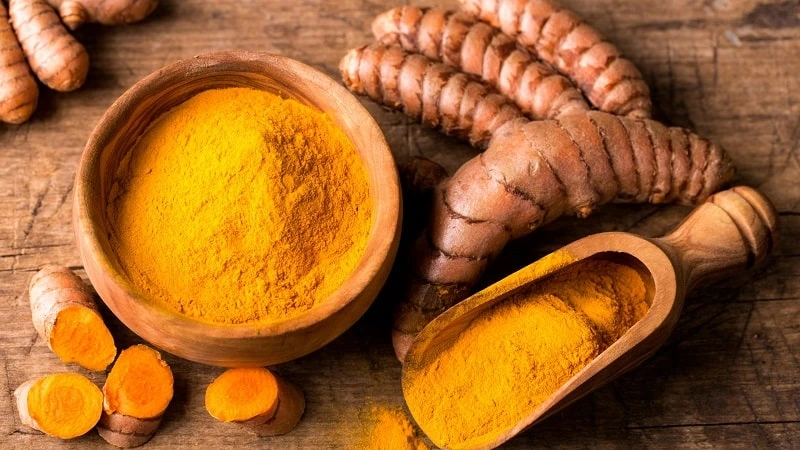Maintaining good health is like nurturing a garden of well-being. Just as plants need sunlight, water, and care, our bodies require essential nutrients to flourish. Imagine a refreshing and flavorful drink that brings together the power of nature’s elements: Vitamin D Magnesium and Turmeric Lemonade.
This delightful concoction isn’t just about taste; it’s about supporting your body’s natural balance. Vitamin D helps keep bones strong and our immune systems ready to defend us. Magnesium ensures our muscles and hearts work smoothly.
Turmeric, known for its vibrant color, offers an extra dash of wellness with its potential anti-inflammatory benefits. Join us on a journey to discover the harmony these ingredients can bring to your health.
Understanding the Key Ingredients
Explaining Vitamin D
Vitamin D is like sunshine for your body. It plays a crucial role in helping your bones stay strong and healthy. This vitamin works by enhancing the absorption of calcium, which is essential for bone structure.
Read Also:14 Signs of Vitamin D Deficiency
But that’s not all – Vitamin D also lends a helping hand to your immune system. It supports your body in defending against harmful invaders. You can think of it as a shield that keeps you strong from the inside out.

Explaining Magnesium
Meet magnesium, the quiet hero behind the scenes. This mineral is responsible for making sure your muscles and nerves work like a well-coordinated dance.
It’s especially important for your heart’s rhythm and keeping your blood pressure in check. Magnesium also contributes to the process that turns food into energy, giving you the vitality you need to power through the day.
Explaining Turmeric
Turmeric is a bright-yellow spice that’s more than just a pretty color. It contains an active compound called curcumin, which has impressive anti-inflammatory properties.
This means it might help calm down those little internal fires that can cause discomfort. Beyond that, turmeric could have some exciting potential health perks, but remember, it’s like adding a sprinkle of wellness to your recipe – not a magic fix-all.
How to Make Vitamin D, Magnesium, and Turmeric Lemonade?
Creating your Vitamin D, Magnesium, and Turmeric Lemonade is easy and enjoyable. Here’s what you need:
Ingredients
- 4 cups cold water
- 1 cup fresh lemon juice (about 6 lemons)
- 4 tablespoons maple syrup or honey
- 1 tablespoon turmeric
- 1 tablespoon powdered magnesium
- 1,000 IU vitamin D supplement (optional)
Preparation
- Begin by juicing the lemons until you have about one cup of fresh lemon juice.
- Dissolve the turmeric, magnesium powder, and optional vitamin D supplement in the water.
- Add the lemon juice and sweetener to the water mixture. Stir well to combine.
- Pour the lemonade over ice and enjoy immediately, or refrigerate until ready to serve.
Nutritional Value
A serving of this lemonade offers not just a thirst-quenching taste, but also a wealth of nutrients that are important for maintaining good health.
Nutritional Breakdown:
- Calories: 120
- Vitamin D: 1000 IU (if using the supplement)
- Magnesium: Approximately 80mg
- Potassium: 200mg
- Vitamin C: 60mg

Instructions
- Mix the lemon juice with water, adjusting the ratio to your taste preference.
- Add a pinch of turmeric powder for its potential benefits and a hint of color.
- Sweeten with honey or your preferred natural sweetener if desired.
- Include a source of Vitamin D and magnesium according to your healthcare provider’s recommendations.
- Stir well and enjoy your unique and healthful Vitamin D, Magnesium, and Turmeric Lemonade!
The Power of the Combination: Vitamin D Magnesium and Turmeric Lemonade
Bringing Vitamin D, Magnesium, and Turmeric together in a refreshing lemonade isn’t just a delicious treat – it’s a smart move for your health.
These three elements work together like a team of superheroes, each contributing their unique powers.
Read Also: What If I Forgot to Give My Baby Vitamin D Drops?
Vitamin D helps your bones and immune system, magnesium ensures your muscles and heart function smoothly, and turmeric adds its anti-inflammatory prowess.
Synergistic Effects on Overall Health
When these ingredients join forces, they create a synergy – a kind of “supercharge” for your body.
Vitamin D assists in calcium absorption, and magnesium helps your body use that calcium efficiently.
This dynamic duo contributes to maintaining strong bones. Adding turmeric into the mix could enhance the potential anti-inflammatory benefits.
It’s like combining the strengths of different friends to conquer challenges together.
Health Benefits of Consuming Vitamin D Magnesium and Turmeric Lemonade
Enhanced Immune System Support
Vitamin D’s Role: Vitamin D is like a superhero cape for your immune system. It helps activate immune cells, allowing them to identify and fend off invaders like bacteria and viruses.
By sipping Vitamin D, Magnesium, and Turmeric Lemonade, you’re giving your immune system a friendly boost, helping it stay strong and ready to protect you.
Read Also: Best Vitamins For Kids Immune System
Improved Bone and Muscle Health
Vitamin D and Magnesium Combo: Vitamin D is like the scaffolding that keeps your bones upright, and magnesium is the invisible hand that helps muscles contract and relax smoothly.
Together, they work in harmony to support bone density and muscle function. Regular consumption of lemonade might contribute to healthier bones and more agile muscles.
Reduced Inflammation and Potential Pain Relief
Turmeric’s Influence: Turmeric contains curcumin, a powerful compound that can help soothe inflammation. Inflammation is like a little fire in your body that can lead to discomfort.
Turmeric might play a role in keeping those flames under control. By enjoying the lemonade, you’re infusing your body with a touch of potential relief from everyday aches.
Support for Cardiovascular Health
Magnesium’s Heart-Healthy Touch: Magnesium is like a guardian for your heart’s rhythm. It helps keep your heartbeat steady and your blood pressure within a healthy range.
When combined with Vitamin D and turmeric, it adds an extra layer of support for your cardiovascular well-being. Sipping this lemonade might contribute to a heart that beats happily.
Conclusion
Incorporating Vitamin D, Magnesium, and Turmeric Lemonade into your lifestyle isn’t just about enjoying a tasty beverage – it’s about nurturing your health.
By blending these ingredients, you’re creating a harmonious blend that supports your immune system, bone strength, muscle function, and overall well-being.
Remember that small steps toward a healthier you can make a big difference over time. As with any dietary change, it’s wise to consult your healthcare provider to ensure it aligns with your unique health needs. So go ahead, and sip your way to a more vibrant and well-balanced life!
FAQs
Can I use bottled lemon juice instead of fresh lemons?
While fresh lemon juice is preferred for its freshness and higher nutrient content, bottled lemon juice can be used in a pinch. However, be mindful of additives and preservatives in bottled options.
Is it safe to add Vitamin D supplements to the lemonade?
Yes, adding a Vitamin D supplement, as per the recommended dosage, is generally safe. However, it’s important to consult with a healthcare professional if you have specific health concerns or are taking other medications.
How long can I store this lemonade in the refrigerator?
The lemonade is best enjoyed fresh, but it can be stored in the refrigerator for up to 48 hours. Be sure to give it a good stir before serving, as the turmeric may settle at the bottom.
Can I make this lemonade without the magnesium powder?
Absolutely! The magnesium powder is optional and can be omitted if preferred. The lemonade will still offer great health benefits from the turmeric and Vitamin D.
Will the taste of turmeric overpower the lemonade?
The amount of turmeric recommended in the recipe offers a subtle flavor that shouldn’t overpower the lemonade. However, feel free to adjust the amount to suit your taste preferences.
Can I substitute maple syrup or honey with another sweetener?
Yes, you can use alternative sweeteners such as stevia, agave nectar, or even regular sugar. Adjust the quantity to achieve your desired level of sweetness.
Can I consume this lemonade every day?
A: Yes, you can enjoy it daily, but moderation is key. Consult your doctor for personalized advice.
How does Vitamin D help my immune system?
A: Vitamin D supports immune cell activation, enhancing their ability to defend against infections.
Can I get enough magnesium solely from the lemonade?
A: While lemonade contributes, it’s beneficial to include magnesium-rich foods like nuts and leafy greens in your diet.
Is turmeric safe for everyone?
A: Generally, yes. However, excessive turmeric intake may interact with certain medications. Consult your physician if you have concerns.
Can this lemonade replace my medication?
A: No, this lemonade is a supplemental addition to a healthy diet, not a substitute for prescribed medications.
Can I use supplements for Vitamin D and magnesium?
A: Supplements can help, but it’s best to consult your healthcare provider to determine the right dosage for your needs.
Can pregnant women drink this lemonade?
A: Pregnant women should consult their doctor before making any significant dietary changes, including this lemonade.
Can children benefit from this lemonade?
A: Yes, but consult your pediatrician to ensure appropriate portions and ingredients for children.
Is homemade turmeric powder as effective as supplements?
A: The curcumin content in homemade powder can vary. Supplements provide standardized dosages for consistent benefits.
Medical References
- Holick, M. F. (2017). The vitamin D deficiency pandemic: Approaches for diagnosis, treatment, and prevention. Reviews in Endocrine and Metabolic Disorders, 18(2), 153-165.
- Volpe, S. L. (2013). Magnesium in disease prevention and overall health. Advances in Nutrition, 4(3), 378S-383S.
- Hewlings, S. J., & Kalman, D. S. (2017). Curcumin: A Review of Its Effects on Human Health. Foods, 6(10), 92.



